If you thought that beer was made of barley, yeast and hops, you would be only partially right. The real ingredient in beer production is people. At least, that's the story at MillerCoors, and with the recent release of the company's "Great Beer, Great Responsibility" 2014 Sustainability Report, you can understand why.
Opening up with the story of the Phoenix team that provided 37,000 safe rides to prevent drunk driving on New Year's Eve, the report follows with the story of Brooke from marketing and the campaign she created with Harley-Davidson to promote safe biking. Enter Steve, who created a community entrepreneurship campaign, and Jay, who drives talent development. Fernando Palacios, Executive Vice President and Chief Integrated Supply Chain Officer then takes the floor to explain supply chain efficiency and Tyler Shannon, environmental health and safety specialist displays pvc strips that are routed for recycling at MillerCoors' Golden brewery in Colorado. Kate goes on to deliver her philosophy on supplier diversity and Judy Jolly, an agronomist in the southern Colorado region, talks about best management practices around water conservation in agriculture and collaboration with MillerCoors.
While all of this reads a bit like a series of inspirational press releases, rather than data-based case studies in a sustainability report, the intention is clear: get to know the people behind the beer, and reinforce the message that beer is made of people.
This was my insight after I talked with Kim Marotta, Director of Sustainability at MillerCoors. Passionate about her role and the headway made so far, Kim was generous enough to spare me some time to tell me about how MillerCoors is doing in sustainability and what's been important to her in advancing the company's efforts and reporting on sustainability performance. Here are her insights:
Your record on sustainability strategy?
We have two parent companies, SABMiller plc and Molson Coors Brewing Company, and they both have an influence on our sustainability programs. But, we are all operating off the same sheet, in line with the same broad strategy. When SABMiller or Molson Coors sets global targets, we play our part to contribute to those targets. We track our performance and report our progress to both our parent companies. However, as the U.S. joint venture, we are focused on the issues that are material to our stakeholders in the U.S. For example, for SAB-Miller, support relief for victims of HIV/Aids is a major part of their program. For the U.S., this is not as material to our stakeholders. We prefer to work on things that are more directly related to important issues in our own market and relevant to our local stakeholders.
Your record on reporting?
We are always considering ways to do things differently in order to get the message across more effectively. In this report, the main difference is that we have devoted much more attention to the people in our business and telling their stories. The reason we are successful is our people – they have a strong desire to make things happen, we wanted to tell their story. We wanted to help others learn about our people and get a glimpse of their world view and how that supports our organizational goals, understand the daily pressures and challenges. In this report, we have tried to bring this out much more than in the past.
Also this time, we aligned our reporting with GRI G4 disclosures, though we did not specify core or comprehensive level. We had already done the work on materiality, so G4 did not pose a significant challenge.
Your record on water conservation?
The initiative that makes me the most proud is our water reduction achievement. We had set a goal in 2008 to reduce water consumption by 15 percent. After a couple of years, we weren't seeing as much progress we had planned. In 2008, we were using more than four barrels of water to make a barrel of beer, and in 2009 and 2010 it was roughly the same. A group of leaders within our integrated supply chain traveled to SABMiller’s plants in South America, which were doing well in this area. Their water consumption was much lower. After a week learning the processes employed there, they came back and immediately started to make changes. They set up war rooms and solicited ideas from everyone in the brewery on how best to capture water savings. This really helped change the culture. In total, we’ve saved 1.1 billion gallons of water since 2012. In 2013, we further reduced our water use by 9.1%. At the end of 2013, we were at 3.48 barrels of water to make one barrel of beer. After getting every single one of our breweries engaged, we hit our 2015 goal early at the end of 2013. This was an incredible process.
Your record on waste diversion?
One of the things that distinguish us as beer producers is our record on zero waste to landfill. Six of our eight major breweries achieved zero waste to landfill. We expect that to be eight out of eight in the not too distant future. I don't think that too many companies can attest to zero waste to landfill. We are delighted with the progress our teams have made to deliver this result.
Your record on drunk driving?
The work that we do to promote responsible drinking and preventing drunk driving is a core part of our sustainability efforts. We have reached 12 million people in our safe ride program. We have partnered with several organizations around the country and created many opportunities for people to order safe rides or get a free safe ride home. For example, Miller Lite is the exclusive sponsor of 1-800-TAXICAB, a national dispatch service that connects passengers to locally owned cab companies. During 2013, more than 700,000 calls were placed to 1-800-TAXICAB. We have ramped up the amount of people taking a pledge to be a designated driver. We pay for public transportation in certain cities for major holidays and events. All in all, we are making a big difference in helping people stay safe and avoiding injury to others caused by driving drunk. Ultimately, it's about enabling people to have fun and keeping them safe.
Your record on supplier diversity?
Supplier diversity has been an important objective for MillerCoors. Supplier diversity helps us grow and be a better business. We have invested more than two billion in contracts with diverse suppliers, and this includes partnerships, mentoring relationships, funding educational opportunities and more. We have one person in a full-time role just looking after our supplier diversity program, identifying and advancing opportunities. We work together collaboratively with diverse suppliers, it's not just about compliance. For our purchasing people, this has become a regular way of doing business. Our CEO maintains a personal interest and commitment, personally reviewing the numbers and progress toward our goals.
The MillerCoors 2014 Sustainability Report is nicely laid out in a friendly-design hyperlinked PDF. The Materiality Map is prominently positioned and identifies 8 high priority issues for MillerCoors.
Following the introductory people story section, the report splits into five areas of progress in 2013, each starting with a 2015 goal and recording progress made in 2013. In each area, overall policy is described and examples of practice are provided. While this is a look-good-feel-good type of report, providing little context beyond the specific activities of MillerCoors, the company records progress across many fronts. Beyond water and waste management, as mentioned above, highlights include:
- GHG emission reduction
- Strong employee safety performance
- LGBT community support
- Investment in education in the community
- Watershed risk assessments
- Packaging design environmental improvements
- Sustainable agriculture and water conservation techniques
Four external commentaries close out the report. They are also PR quotation material but also indicate that good relationships are in place.
Overall, the generally positive nature of this report does not detract from the amount of progress in evidence. A little more balance and local context in future reports may add to credibility levels.
The G4 content index is indicatively included for a selection of G4 disclosures – 21 general disclosures (about two-thirds of the 34 required for core level reporting) and 24 performance indicators, 14 of these in the environmental category. The actual disclosures in many cases do not meet the full requirements of the G4 Performance Indicators. A material case in point is G4-EN8 – water consumption. MillerCoors reports a water-to-beer ratio but no absolute data for water consumption or water withdrawal sources, as required by the indicator.
However, the GRI Content Index serves to help match disclosures with stated material issues – and this, after all, is one of the main purposes of the index and one of the main goals of G4: aligning disclosure with stated materiality.
And if you were thinking of giving feedback – MillerCoors will make it worth your while. Unobtrusively positioned at the end of the report is an invitation to take part in a feedback survey. Here is the link: https://www.surveymonkey.com/s/MCGBGR2014. After taking a look, I realized that, in return for completing the survey and leaving my contact details, by, I could win a tablet! So, if you need a tablet, telling MillerCoors what you think of their report might just be the way to get one. I confess to being skeptical about these types of survey, and their true value in helping understand what stakeholders want. In the worst case, at least MillerCoors will know who wants a tablet.
It's always good to read a report and talk to the folks responsible for developing it. Reporting is always an opportunity to engage and I was impressed with the way Kim at MillerCoors was happy to address my questions and provide a personal perspective.
And this brings me back to a point I often make. Not only beer is made of people. So are sustainability reports.
elaine cohen, CSR consultant, winning (CRRA'12) Sustainability Reporter, HR Professional, Ice Cream Addict. Author of Understanding G4: the Concise guide to Next Generation Sustainability Reporting AND Sustainability Reporting for SMEs: Competitive Advantage Through Transparency AND CSR for HR: A necessary partnership for advancing responsible business practices . Contact me via www.twitter.com/elainecohen or via my business website www.b-yond.biz (Beyond Business Ltd, an inspired CSR consulting and Sustainability Reporting firm






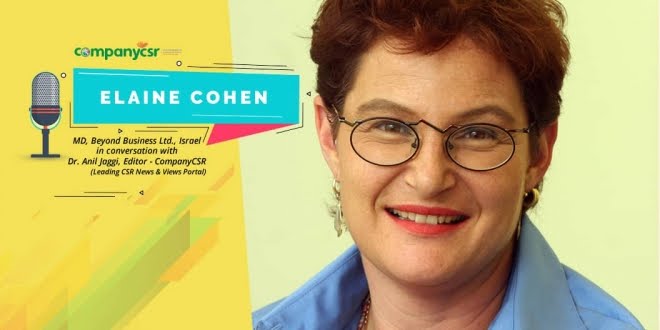
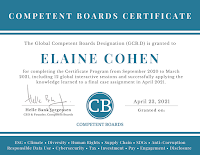


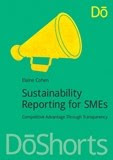
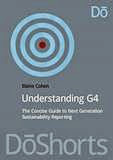
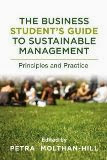
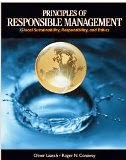
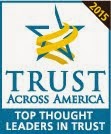










No comments:
Post a Comment